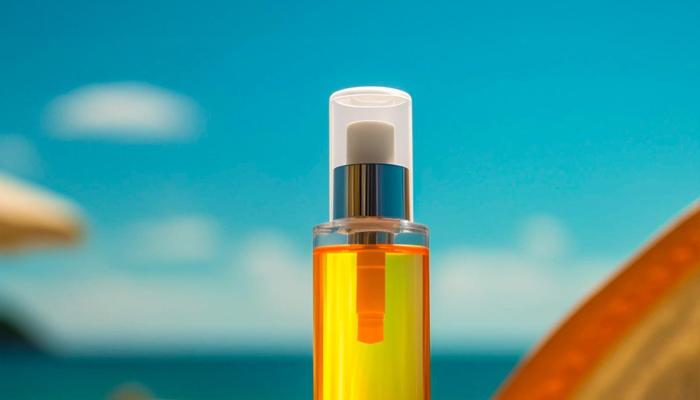Unlock the Secrets of Sunscreen: Find Your Perfect Match! Dive into vital ingredients for skin protection
With the Indian summer beating down on us, sunscreen isn't just a suggestion anymore, it's a necessity!
But with so many options available in the market, choosing the right one can feel like a Herculean task. Don't worry, we're here to break it down for you.
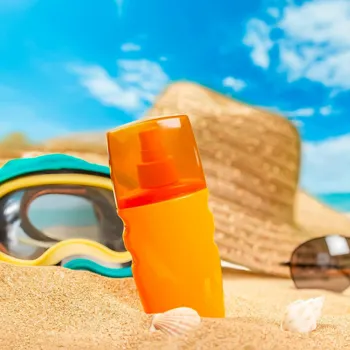
Understanding the key ingredients is the first step towards finding a sunscreen that will actually protect your skin from harmful UV rays. Think of it like this, you wouldn't buy a car without knowing what's under the hood, right? Same goes for sunscreen!
Let's dive into the world of sunscreen ingredients and help you make an informed choice for healthy, happy skin.
Choose sunscreen with broad spectrum protection against UVA and UVB rays
One of the most important things to look for is "broad spectrum" protection. This means the sunscreen protects you from both UVA and UVB rays. UVB rays are the main cause of sunburn, while UVA rays can lead to premature aging, wrinkles, and skin damage.
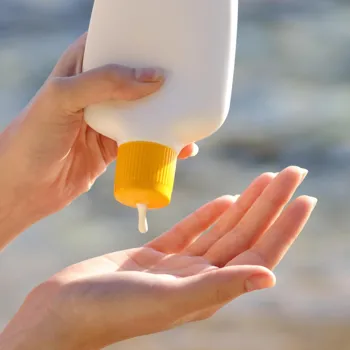
Both types of rays can contribute to skin cancer, so broad spectrum protection is crucial. Imagine UVA rays as the silent villains, working behind the scenes to damage your skin over time, while UVB rays are the loud troublemakers, causing immediate and obvious burns.
Your sunscreen needs to shield you from both! Remember, consistent use is key. Applying sunscreen once in a blue moon won't cut it. Make it a part of your daily routine, just like brushing your teeth.
Mineral vs chemical sunscreens: how they work and their benefits
Now, let's talk about the main active ingredients. These are the ingredients that actually do the work of blocking or absorbing UV rays. Sunscreens generally fall into two categories: mineral sunscreens and chemical sunscreens.
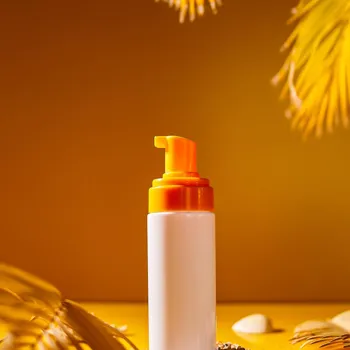
Mineral sunscreens use zinc oxide and titanium dioxide as their active ingredients. These minerals work by creating a physical barrier on the skin that reflects UV rays. They are generally considered to be gentler on the skin and are a good option for people with sensitive skin or allergies.
Zinc oxide, in particular, is known for its soothing properties. Think of it as a shield that deflects the sun's rays away from your skin. Titanium dioxide is another great option for those looking for a gentle sunscreen. Mineral sunscreens are also considered to be more environmentally friendly.
Chemical sunscreens absorb UV rays, some may harm environment
Chemical sunscreens, on the other hand, use chemical filters that absorb UV rays and convert them into heat, which is then released from the skin. Common chemical filters include oxybenzone, avobenzone, octinoxate, and octisalate.
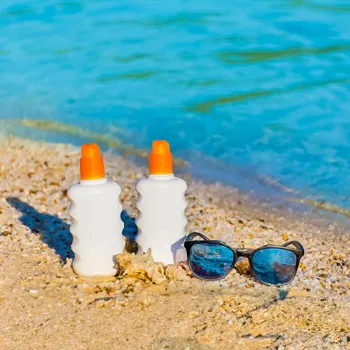
While effective, some of these chemicals have raised concerns about potential hormone disruption and environmental impact. Oxybenzone, in particular, has been linked to coral reef damage, so many people are opting for sunscreens that are free of this ingredient.
However, it is to be noticed that sunscreen formulations are constantly evolving, and innovative chemical filters are being developed with improved safety profiles. It's always a good idea to research the specific ingredients in a sunscreen before purchasing it.
Choose sunscreen wisely for UVB protection; SPF not sole factor
Besides the active ingredients, there are other things to consider when choosing a sunscreen. The Sun Protection Factor (SPF) is a measure of how well a sunscreen protects you from UVB rays. The higher the SPF, the more protection it offers. However, SPF ratings can be a bit misleading.
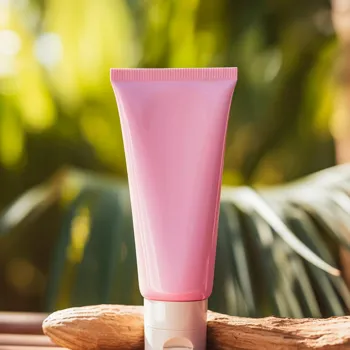
SPF 30 blocks about 97% of UVB rays, while SPF 50 blocks about 98%. The difference might not seem significant, but it can be important for people with very sensitive skin or a history of skin cancer.
Also, remember that SPF only measures protection against UVB rays, so it's still essential to look for broad spectrum protection.
Consider skin type when choosing sunscreen for oily, dry, or sensitive skin
Something that is very important to consider is your skin type. If you have oily skin, look for a sunscreen that is oil-free and non-comedogenic. This means it won't clog your pores and cause breakouts. Gel or lotion formulas are generally a good choice for oily skin.

If you have dry skin, look for a sunscreen that is moisturizing and contains ingredients like hyaluronic acid or ceramides. Cream formulas tend to be more hydrating. For sensitive skin, opt for a mineral sunscreen with zinc oxide and titanium dioxide, as these are less likely to cause irritation.
Also, avoid sunscreens with fragrances or dyes, as these can also irritate sensitive skin. When in doubt, do a patch test before applying the sunscreen all over your face. Apply a small amount to a discreet area of skin, like your inner wrist, and wait 24 hours to see if you have any reaction.
Apply sunscreen generously every 2 hours for skin protection
Finally, don't forget to apply sunscreen generously and reapply it every two hours, or more often if you're swimming or sweating. Most people don't use enough sunscreen, so make sure you're applying a thick enough layer to adequately protect your skin.
A good rule of thumb is to use about an ounce of sunscreen (about a shot glass full) to cover your entire body. So, there you have it! With a little knowledge and careful consideration, you can find the perfect sunscreen to protect your skin from the sun's harmful rays.
Remember, sunscreen is an investment in your long-term health and well-being.
AI Generated Content. Glance/InMobi shall have no liability for the content